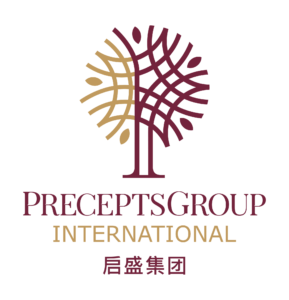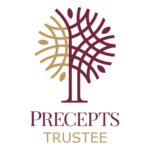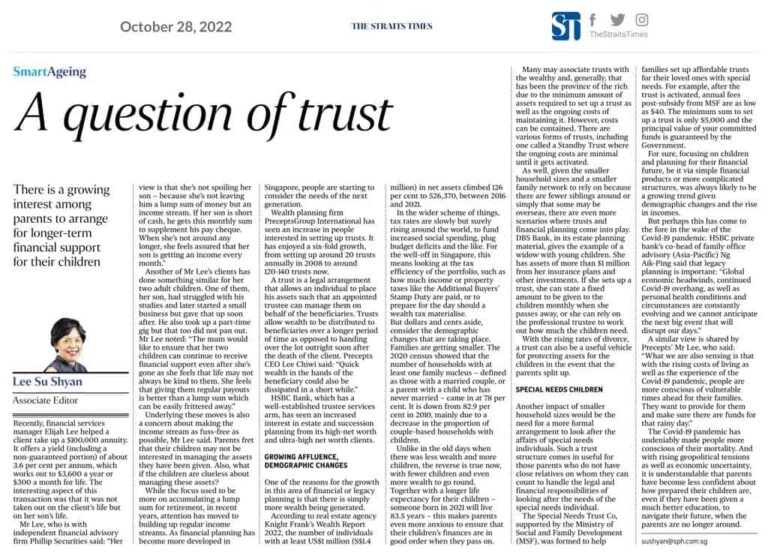The prosecution of the various parties is a warning to any person who attempts to use fraudulent documents to avoid paying ABSD (Additional Buyer’s Stamp Duty). Apart from the jailable terms, the couple involved was ordered to pay a penalty of S$276,000, four times the amount of ABSD evaded.
In another Channel News Asia article, it said that if individuals were aware of such evasions, they could contact the Inland Revenue Authority of Singapore (IRAS), and a reward based on 15 per cent of the tax recovered, capped at S$100,000 would be given to informants in successful cases!
A structure where ABSD is possibly also avoided relates to trusts which have been set up by many parents. Many appoint themselves as trustees; likely for their own convenience and without understanding the proper role, administration and responsibilities of trusteeship. Many of these trusts if scrutinized could be nominee arrangements instead, the motive largely being to avoid
ABSD. Under the scrutiny and audit of the IRAS, many of these trusts could be deemed as tax avoidance schemes and the “parent trustee” possibly prosecuted and fined.
The current ABSD rules introduced as part of the property cooling measures do not penalize genuine trusts that are set up for inheritance and succession planning and where ABSD is not payable when the beneficiary concerned does not own any other residential property. For the longest time, the Trustees Act already gives powers to trustees to purchase residential property for the benefit of a beneficiary. The situations where such property trusts can be planned for and unaffected by the imposition of ABSD are numerous, such as for the protection of beneficiaries who are minors, spendthrifts or even if adults are vulnerable because of the loss or potential loss of mental incapacity.
Those who are considering purchasing residential property and setting up a trust to hold the property where another person is beneficiary should seek proper legal and tax advice.














